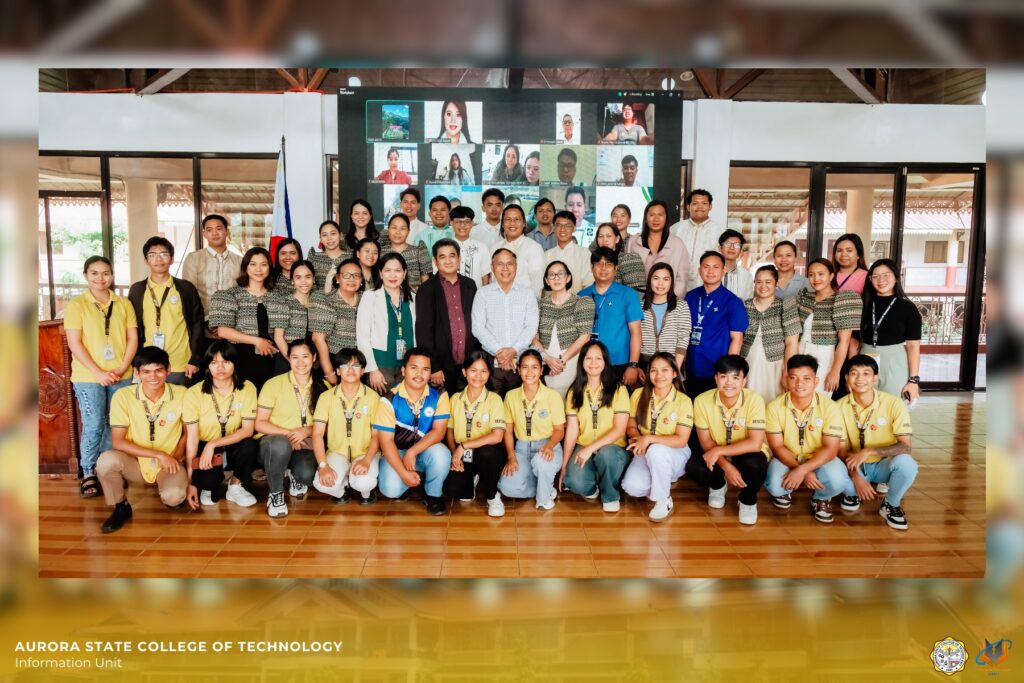ASCOT News
Key Moments from ASCOT's Int'l Agri-Future Webinar

March 18, 2025- With 1,458 registrants including 15 from various countries, the recently concluded International Webinar on Agriculture showcased groundbreaking research and advancements in the field. With speakers and experts from across the globe, the event attracted a diverse audience—students, faculty, researchers, and administrators.
Dr. Danilda H. Duran of the Philippine Carabao Center opened the discussions with her presentation on “Revolutionizing Livestock Reproductive Biotechnologies: Green Innovation for a Sustainable Agri-Future.”She highlighted advancements in buffalo breeding and biotechnology, emphasizing their potential to enhance dairy and meat production.
Prof. Takashi Kuramoto provided a fresh perspective on dairy innovation, presenting the current state of dairy farming in Japan and the exciting potential of A2 milk. He explained how A2 milk offers an alternative for individuals with dairy sensitivities and how Japan is leading advancements in this industry.
Ms. Rica Napoles captivated the audience with her session on mushroom production, showcasing its economic potential and sustainability as a food source. Her discussion inspired participants to consider mushroom farming as a viable agribusiness opportunity.
Afternoon session started with Prof. Dr. Kasem Soytong from King Mongkut’s Institute of Technology Ladkrabang, Thailand, shared insights on “Modern Organic Agriculture and Organic Certification by AATSEA from Farm to Table.” His talk underscored the importance of organic standards and sustainable farming practices in ensuring food security and environmental protection.
Dr. Jackson Sebigunda of the University of Goma, Democratic Republic of the Congo, introduced “Talking Fields: A Remote Sensing Tool for Soil and Vegetation Phenotyping.” He demonstrated how satellite technology and remote sensing can revolutionize soil health assessment and crop monitoring, helping farmers make data-driven decisions.
Prof. Yoko Kato from Kindai University specializes in reproductive biotechnology,delved into the future prospects for egg and early embryo manipulation technology, shedding light on how reproductive biotechnologies can enhance livestock production. His research emphasized the importance of genetic advancements in agriculture, particularly in improving breeding efficiency and sustainability.
Mr. Peioneti Lui, Senior Agriculture Officer from Tonga’s Ministry of Agriculture, Foods & Forestry, explored the “Effects of Adding Coconut Charcoal on Soil Physical Properties and Maize Performance.” His research revealed how coconut-based biochar can improve soil water retention—an increasingly crucial factor in the face of rising temperatures.
The webinar emphasized the power of scientific research, curiosity, and the importance of leveraging agricultural strengths to address global challenges. With agriculture at the heart of sustainable development, the event successfully inspired attendees to explore innovative approaches in their respective fields.
iNFORMATION uNIT cONTACT
For media inquiries or to submit activities for posting, please contact Head of Information Unit, Diana Rose P. de Mesa- Amazona for further information at facebook.com/dianaplazademesa.

